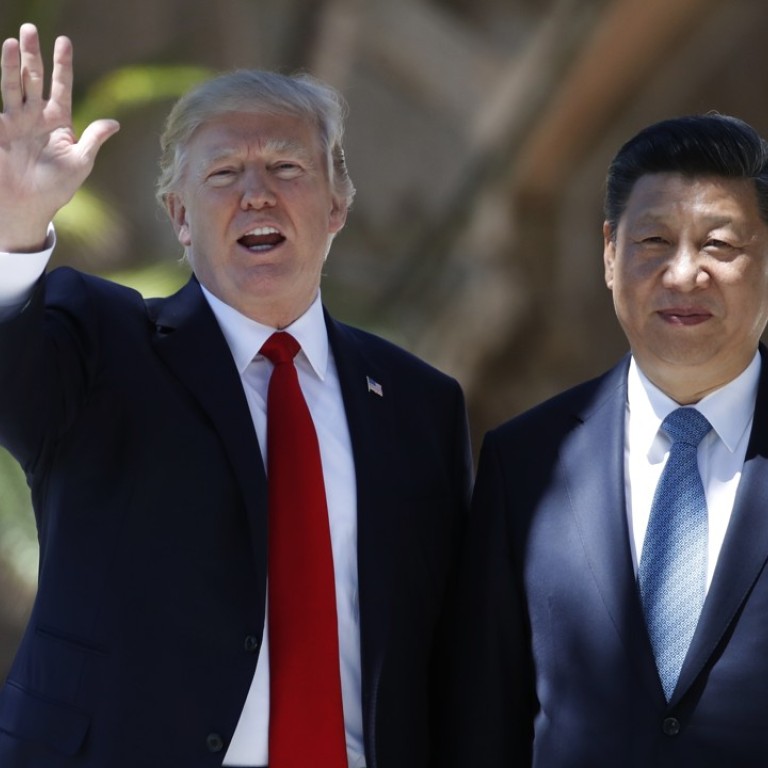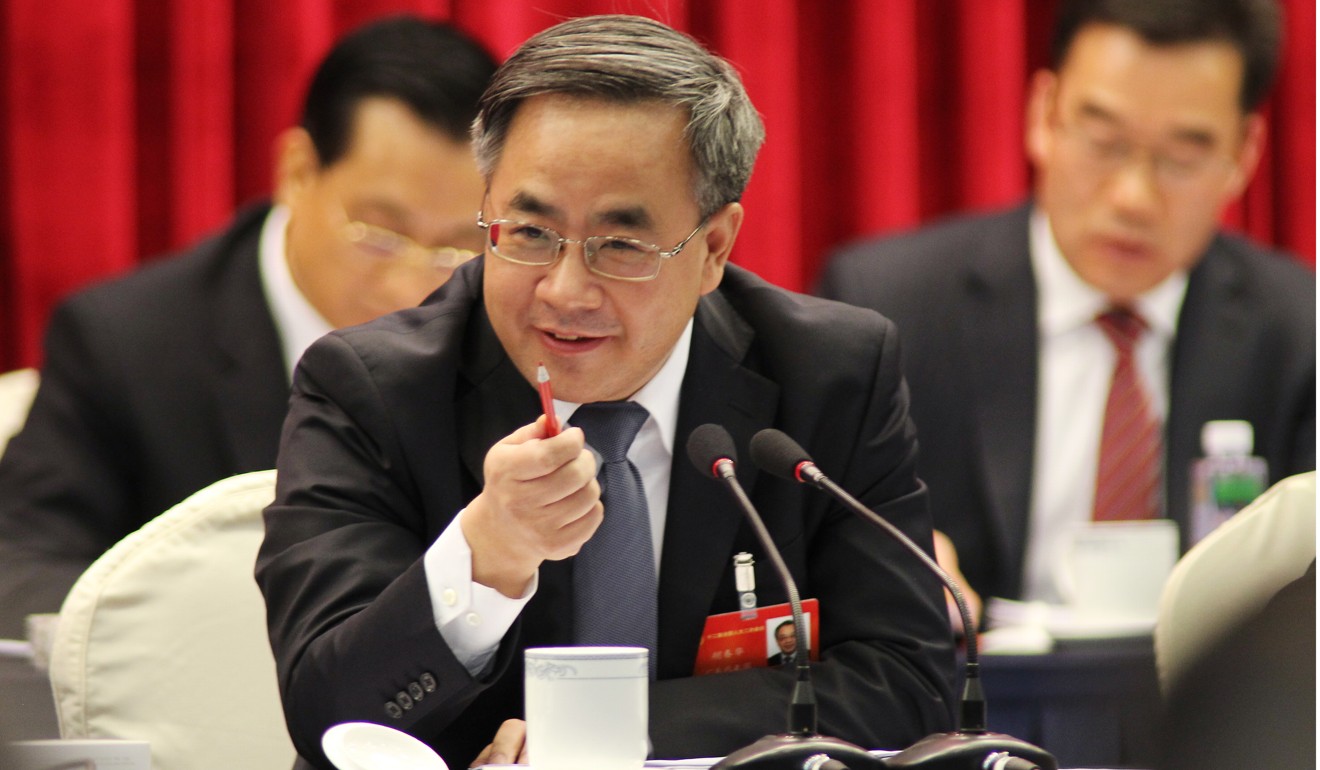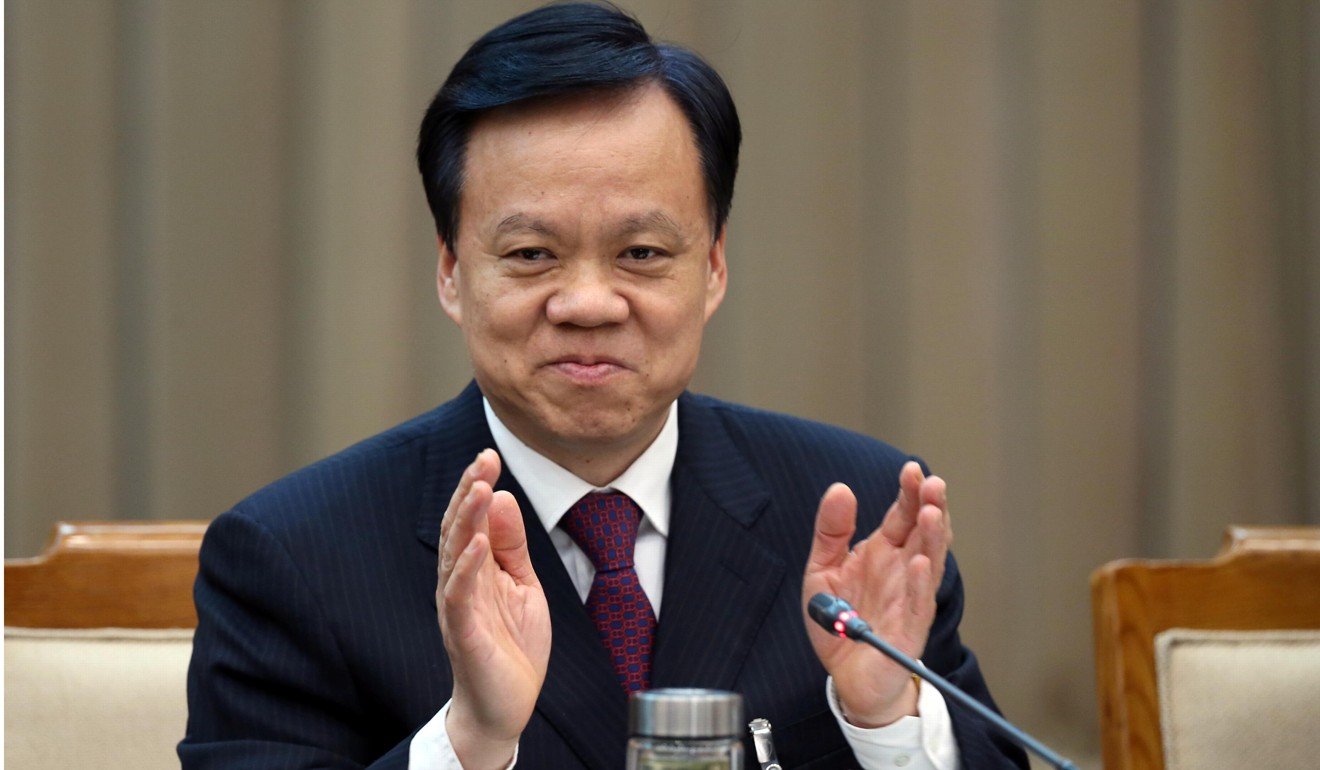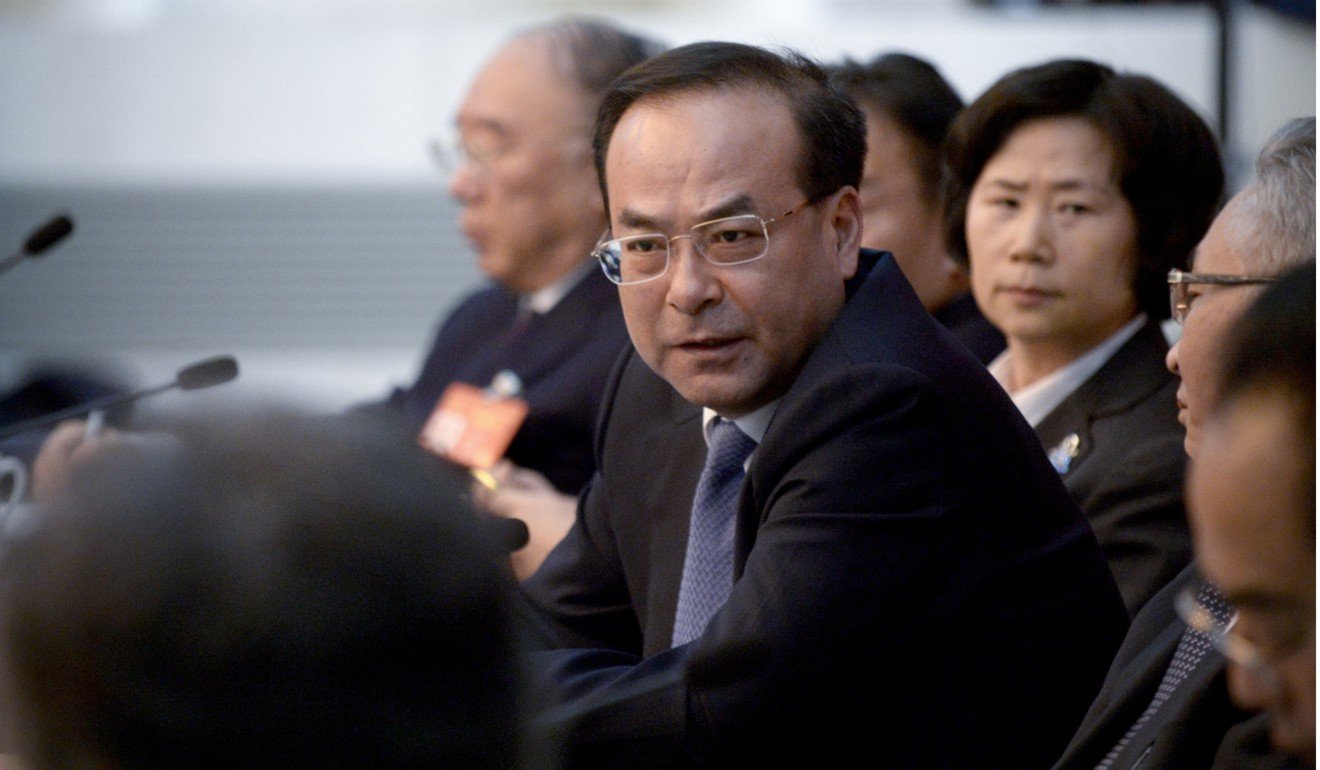
Analysis | How China’s regional chiefs use Trump tactic in race for top
One mentioned Communist Party chief Xi Jinping’s name 26 times in a speech, another mentioned poverty 90 times
Some contenders for top Communist Party leadership positions in China appear to have taken a leaf out of US President Donald Trump’s book by resorting to flattery and “truthful hyperbole” in recent speeches to provincial party congresses.
In his 1987 book The Art of the Deal, Trump emphasised the value of “an innocent form of exaggeration” in winning over support. Guangdong party secretary Hu Chunhua mentioned party general secretary Xi Jinping’s name 26 times in his keynote address to the provincial party congress last month and Xi’s role as the core of the party leadership seven times.
Another contender for one of five possible vacancies on the party’s topmost Politburo Standing Committee at the party’s 19th national congress this autumn, Guizhou party boss Chen Miner, emphasised one of Xi’s main concerns, poverty alleviation, in his speech to the province’s party congress in April, mentioning the word poverty more than 90 times.
The present Politburo Standing Committee has seven members, but if an unwritten retirement rule known as “seven up, eight down” is observed, mandating retirement for those 68 or older, there will be five vacancies this year. Only two committee members – Xi, who will be 64, and Premier Li Keqiang, who will be 62 – will be under 68 by the time of the congress.

The top contenders for promotion are likely to come from the ranks of China’s 31 regional party secretaries, with Hu, 54, Chen, 56, and Chongqing’s Sun Zhengcai, 53, seen as three rising political stars, along with those serving with the central authorities, such as Politburo members Li Zhanshu and Wang Yang. Li is director of the party Central Committee’s General Office and Wang Yang is a vice-premier.
In his May 22 political report to the provincial party congress in Guangdong, one of China’s richest provinces, Hu chose to highlight his achievements in fighting corruption, one of Xi’s priorities in recent years.
“A landslide victory against corruption is in the making ... the surge of corruption cases has been effectively stemmed, the number of such cases has been significantly reduced,” he said.
There have been 470 officials of prefectural level or about put under investigation for corruption in Guangdong since Hu became the province’s party chief in December 2012, more than in any other region.
In the speech, Hu, who has been Guangdong’s party chief for five years, also highlighted Xi’s “important instruction” in April in which Xi “fully endorsed” the provincial party committees work over the previous five years and urged it to further support national economic restructuring. Hu mentioned the “important instruction” six times in his speech, hailing it as a “major milestone of significance to Guangdong’s development”.

Hu’s fulsomeness could partially be explained by his background in the Communist Youth League, the power base of Xi’s predecessor Hu Jintao (no relation), and the tuanpai faction associated with it. Hu Chunhua headed the youth league, which for decades served as a cradle for future senior leaders, from 2006 to 2008, but its influence has been suppressed in recent years.
Chen Miner, who has been party chief of Guizhou, one of China’s poorest provinces, for two years, took a different tack at the provincial party congress that closed on April 20.
“We managed to lift more than 7.76 million of people out of poverty in Guizhou over the past five years, when we put poverty reduction as our first priority of work,” said Chen, who was the province’s governor before becoming its party chief.
Widely regarded as one of Xi’s closest political allies, Chen reported directly to Xi as head of the provincial publicity department in Zhejiang between 2002 and 2007 when Xi was the province’s party secretary.
Poverty alleviation ranks alongside fighting corruption in Xi’s policy priorities and one of the party’s “Two Centennial Goals” is the comprehensive establishment of a moderately prosperous society by 2021, which will mark the centenary of the party’s founding. China has lifted about 800 million people out of poverty since the implementation of reform and opening up in the late 1970s, and Xi pledged in October 2015 to lift the remaining 70 million impoverished people out of poverty within five years.

Chen has long been seen as a top contender for a seat on the Politburo Standing Committee and Xi gave him implicit backing by opting to go to the national party congress as a delegate from Guizhou rather than Shanghai, which he represented at the past two congresses.
Sun’s promotion prospects suffered a setback early this year when the municipal party committee he leads was publicly shamed by the party’s Central Commission for Discipline Inspection for failing to rid the southwestern megacity of the “pernicious legacy” of disgraced former party boss Bo Xilai, who was jailed for life in 2013 for corruption.
In his speech to the municipal party congress last month, Sun, a former agriculture minister with a PhD from China Agricultural University, stressed his achievements in developing agriculture and rural areas and improving farmers’ incomes.
He also highlighted Chongqing’s average annual gross domestic product growth of 11.7 per cent over the past five years, the second-highest in the country, with a nod to Xi along the way.
“All the achievements we accomplished are the results of the strong leadership of the party’s Central Committee with comrade Xi Jinping as its core, our resolution in maintaining a high degree of consistency with the Central Committee, our comprehensive consolidation of decisions made by the central authorities and the hard work and unity of all party cells, party cadres and people from all walks of life in the city,” he said.

